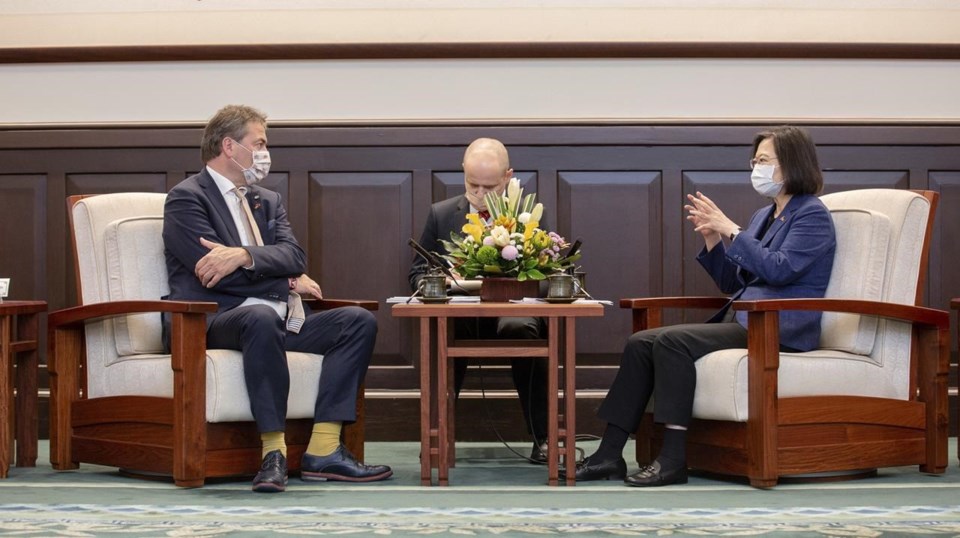TAIPEI, Taiwan (AP) — Any changes to the China-Taiwan relationship must come about peacefully, a visiting German lawmaker said Monday, two days after China's ruling Communist Party wrote its rejection of Taiwan independence into its charter.
A German parliamentary delegation focusing on human rights met Taiwan President Tsai Ing-wen at her office on Monday. The lawmakers expressed interest in how Taiwan would handle threats from China.
“Taiwan is really facing military threats," delegation head Peter Heidt said. “From Germany’s point of view, changes to the cross-strait status quo, if any, must be based on peaceful means. Also, these changes must be made after both sides have reached a consensus.”
China claims Taiwan as its territory and says the self-governing island about 160 kilometers (100 miles) off its east coast must come under its control.
The Chinese Communist Party, on the last day of a major congress that confirmed a third five-year term for leader Xi Jinping, inserted a statement into the party constitution on Saturday “resolutely opposing and deterring separatists" seeking Taiwan's independence.
“We note Xi Jinping’s intimidation against Taiwan in China’s 20th party congress. We also note the reaction of mainland China after Pelosi visited Taiwan,” he said, referring to the large-scale military drills held after the visit of U.S. House Speaker Nancy Pelosi in July.
Tsai did not refer to the amending of the Communist Party's constitution in her remarks. But her government's Mainland Affairs Council issued a statement Saturday urging China to break away from the mindset of confronting or even conquering the island, according to Taiwan's Central News Agency.
The statement said their differences should be resolved in a peaceful manner.
At the opening of China's weeklong party congress, Xi said Beijing would continue to strive for peaceful “reunification” with Taiwan but refused to renounce the possible use of force. The two sides split in 1949 after a civil war.
Taiwan’s Mainland Affairs Council responded that the island's 23 million people have the right to decide their own future and urged Beijing to stop imposing its political framework and its military coercion.
The German delegation arrived on Sunday and was expected to leave on Wednesday. It is the second German parliamentary group visiting Taiwan this month.
The Associated Press




